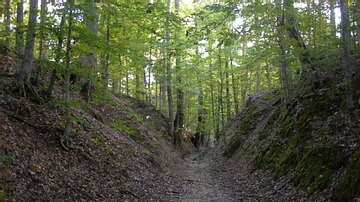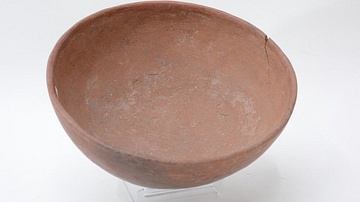Search
Search Results

Collection
The Art & Culture of Ancient Greece
The ancient Greeks were masters at picking up ideas from other cultures, mixing these with their own innovations and producing unique contributions to world culture. Greek sculptors adored the human form, painters loved to tell stories on...

Definition
Native Peoples of North America
The Native Peoples of North America (also known as American Indians, Native Americans, Indigenous Americans, and First Americans) are the original inhabitants of North America believed to have migrated into the region between 40,000-14,000...

Collection
Maya Religion & Culture
Maya religion and culture is among the most advanced and sophisticated of the Pre-Colombian Americas as evidenced by the ruins of their great cities and what remains of their writings after most were burned by the Spanish in 1562. The Maya...

Definition
Natchez Trace
Natchez Trace is a historic site and park in the United States commemorated by the Natchez Trail Parkway stretching 444 miles (715 km) from Natchez, Mississippi, through northern Alabama, to Nashville, Tennessee, roughly adhering to a series...

Image
Map of the Iron Age La Tène Culture c.400 BCE - c.50 CE
This map illustrates the extent of the La Tène culture, a key phase of the European Iron Age that flourished from around 450 BCE until the Roman conquests in the 1st century BCE. It highlights the widespread influence of early Celtic societies...

Definition
Ancient Celts
The ancient Celts were various tribal groups living in parts of western and central Europe in the Late Bronze Age and through the Iron Age (c. 700 BCE to c. 400 CE). Given the name Celts by ancient writers, these tribes and their culture...

Image
Map of the The Hallstatt Culture
A map illustrating the spread of the Hallstatt culture, a predominant European Late Bronze and Early Iron Age culture from the 12th to 5th centuries BCE. It is generally accepted as a proto-Celtic culture. It is named after Hallstatt, an...

Image
Map of the Urnfield Culture c. 1300 BCE
This map illustrates the spread of the Urnfield culture in Europe by around 1300 BCE, a late Bronze Age archaeological horizon named for the practice of cremating the dead and placing their ashes in urns buried in fields. Lasting from roughly...

Definition
Poverty Point
Poverty Point is an archaeological and historic site in Louisiana, USA, dated to c. 1700-1100 BCE, enclosing one of the most significant Native American mound sites from Pre-Colonial America. It was once the location of a grand complex of...

Image
Example of Salado Culture Pottery
The Salado culture is a term used by historians and archaeologists to describe a pre-Columbian Southwestern culture that flourished from c. 1200-1450 CE in the Tonto Basin of what is now the southern parts of the present-day US states of...